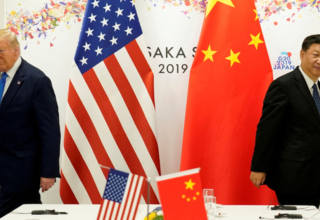
In the bustling streets of Asia’s vibrant cities, a transformation is unfolding, one that goes beyond technology and algorithms. It’s a story of AI’s quiet ascent into the realm of journalism, but it’s also a story of the human spirit, innovation, and adaptation.
Our journey begins in South Korea, a nation renowned for its technological prowess and the global phenomenon of K-pop. Here, Zaein stands as a testament to the fusion of human creativity and AI innovation. With her sleek black hair and grace, she’s more than an AI creation; she’s an embodiment of South Korean artistry.
Zaein’s talents are awe-inspiring. She can sing melodies that tug at the heartstrings, deliver news updates with precision, and even showcase luxury clothing with flair. Pulse9, a pioneering South Korean company, birthed her into existence, crafting digital characters for major conglomerates. But Zaein represents more than virtual stardom; she’s a vision of harmony, where virtual humans coexist as colleagues and friends alongside their flesh-and-blood counterparts.
Pulse9, fueled by a relentless passion for AI human interaction, continues to push boundaries. They’re dedicated to proving that the virtual world can seamlessly merge with the real one. Yet, amidst the whirlwind of technological advancement, they remain anchored in the belief that human involvement remains essential, at least until AI evolves into an independent journalist.
AI Beyond the Surface
But South Korea’s AI landscape isn’t limited to virtual stars. It delves deeper, into the spiritual realm, where AI pastors guide the faithful through prayer apps. It journeys into the realm of news, where deepfake presenters have become familiar faces. South Korea’s role as a global AI leader is unmistakable, a beacon of innovation and progress.
Filipino Journalists Make Their Voices Heard
Our narrative takes an intriguing twist in the Philippines, where AI-generated sportscasters, Maia and Marco, have stirred the journalistic waters. In a nation where sports and media hold a special place in hearts, these AI avatars have sparked a whirlwind of emotions.
Keep Reading
Anthony Suntay, a seasoned sports broadcaster, stands firm in his belief that AI can’t replicate the passion and love for the game that humans bring. Noli Eala, the Philippine Sports Commission chairman, embraces progress but clings to tradition, insisting on the human touch in sports reporting.
Generative AI faces its share of critics, primarily due to concerns about biases in content creation. As GMA Network pioneers generative AI programming, it grapples with the age-old question of whether machines can capture the authenticity and intimacy that humans bring to storytelling.
The Asian AI Tapestry
Our journey extends far beyond South Korea and the Philippines. Across Asia, AI’s influence in journalism is expanding, redefining how news is created, delivered, and consumed. It’s not just about efficiency; it’s about a new era of storytelling, where chatbots engage readers, and data drives reporting.
As the silent revolution of AI journalism unfolds, it’s a narrative of both hope and caution. While AI offers unparalleled speed and precision, it’s the human touch that adds color and depth to our stories. In Asia, the balance between AI and human expertise is an ongoing tale, where innovation and tradition dance to the rhythm of progress.
In this evolving landscape, AI may be the silent force, but the human spirit remains the beating heart, guiding the path of journalism in Asia.

























